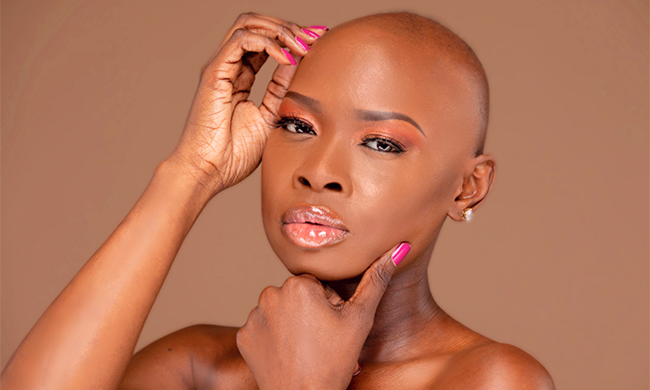
(Family Features) Alopecia areata is a common autoimmune condition that causes hair loss on the scalp, face and other areas of the body. Nearly 7 million people in the United States are affected by the condition that has no cure, effective treatments or standard of care. Alopecia areata can affect anyone at any age and may be temporary or a life-long condition.
Thirty-year-old Ebony Jean was diagnosed with alopecia areata at age 4 when she started losing clumps of hair, which left patches on her scalp. By the fifth grade, she was living with total permanent hair loss, or alopecia universalis.
Living with alopecia areata is not easy for many – and especially those who are diagnosed at a young age. The condition is plagued with stigma, which can wreak havoc on mental health and well-being. In Jean’s case, not only did she have to deal with the uncertainty and unpredictability of the condition, but she also dealt with traumatizing mistreatment and bullying by her peers, and in some cases, teachers.
“Kids used to ask me questions like, ‘What did you do to your hair?’ and ‘Why is it like that?’” in reference to her wigs, she said. “There were rumors that I was a cancer patient. I experienced a lot of rejection despite trying really hard to fit in.”
The mental health toll she experienced was real and still stings her today. However, she never gave up – she focused on herself, her studies and did what she could to stay social.
Enter fashion. Jean always had a passion for fashion and felt its head-to-toe magic for as long as she can remember. It’s a personal way to express herself.
In college, she began dabbling in photography and was able to bring her love for fashion and beauty to life. For many years, she tried altering her appearance to look like others, but something shifted when she turned 25. Jean embraced her inner and outer beauty and started a pageant career. In fact, she was the first African American living with alopecia areata to take the stage in Miss Michigan USA.
In 2016, Jean attended the National Alopecia Areata Foundation’s (NAAF) annual conference – which was a life-changing event for her. She was able to connect with people like herself living with alopecia areata who had embraced their condition. It was the first time Jean publicly shared her story – and struggles – with 500 people in attendance, which she described as “the most freeing and beautiful moment.”
Jean continues to be actively involved in NAAF and uses her voice to advocate for change. Through social media, she helps others who may be going through the same struggle to help educate, empower and motivate – while embracing fashion and beauty.
To learn more about alopecia areata, visit NAAF.org.
Developed with financial support from Pfizer.

